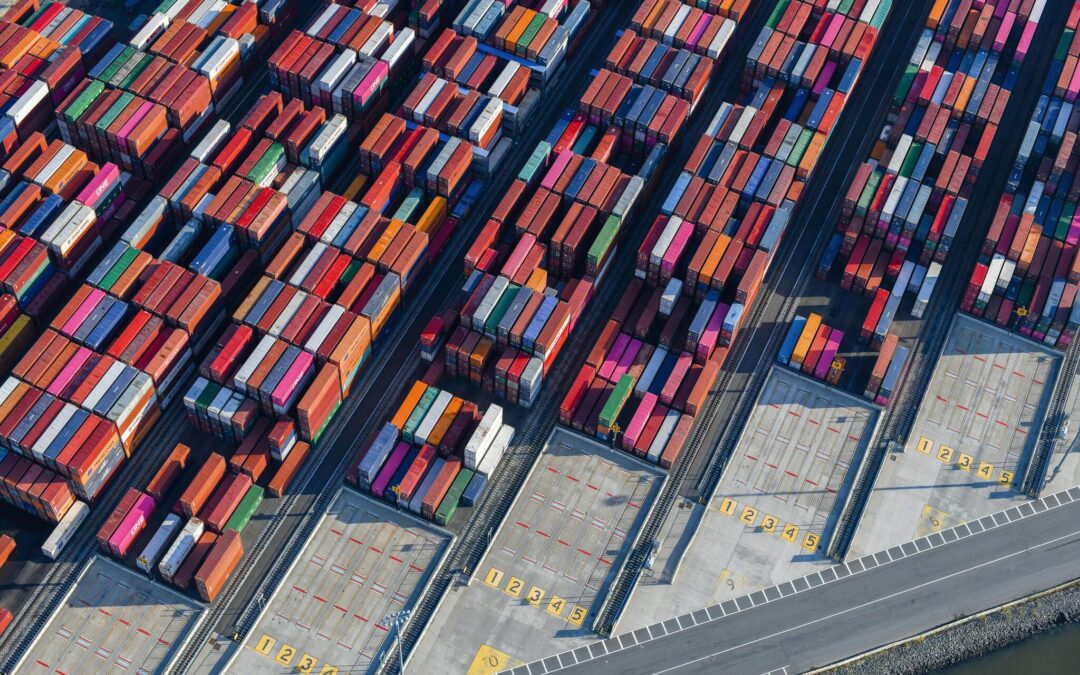Keep our news free from ads and paywalls by making a donation to support our work!

Notes from Poland is run by a small editorial team and is published by an independent, non-profit foundation that is funded through donations from our readers. We cannot do what we do without your support.
The new tariffs announced by US President Donald Trump will lower Poland’s GDP by an estimated 0.4%, amounting to over 10 billion zloty (€2.4 billion), says Prime Minister Donald Tusk. This would be a “severe and unpleasant blow, but we will survive it”, he adds.
By contrast, the presidential candidate supported by Poland’s main conservative opposition party today appeared to defend Trump’s decision to impose tariffs on the European Union, calling it “understandable”. That prompted criticism from a government minister.
Według wstępnej oceny nowe amerykańskie cła mogą zmniejszyć polski PKB o 0,4 proc., czyli w ostrożnym uproszczeniu straty przekroczą 10 miliardów złotych. Cios dotkliwy i przykry, bo od najbliższego sojusznika, ale go przetrzymamy. Nasza przyjaźń🇵🇱🇺🇸też musi przetrwać tę próbę.
— Donald Tusk (@donaldtusk) April 3, 2025
On Wednesday, Trump announced a slew of tariffs – taxes on imports – of varying levels for countries around the world. The EU, of which Poland is a member, was hit by a a tariff of 20%.
“According to a preliminary assessment, the new American tariffs may reduce Polish GDP by 0.4%, or, in a cautious simplification, losses will exceed 10 billion zloty,” wrote Tusk on social media on Thursday afternoon.
“[This is] a severe and unpleasant blow, because it comes from our closest ally, but we will survive it,” he added. “Our Polish-American friendship must also survive this test.”
In a separate post in English, Tusk wrote: “Friendship means partnership. Partnership means really and truly reciprocal tariffs. Adequate decisions are needed.” He also announced plans to meet with representatives of the Polish automotive industry to discuss the tariffs.
Tusk did not specify the source of the estimate he cited. But a report published by the Polish Economic Institute (PIE) on Wednesday – before the specific tariff levels were announced – estimated that further US tariffs could reduce Poland’s GDP by between 0.11% and 0.43%
The upper end of that range – a decline of 0.38% to 0.43% – would result from a tariff rate of 25% (slightly higher than the one announced on Wednesday), found the report.
According to PIE, demand from the US accounted for 2.6% of Polish GDP and around 3% of employment in 2023. However, most of the Polish added value consumed in the US arrives there indirectly via trade partners such as Germany, Mexico and Canada.
Thus, “the imposition of tariffs on Canada and Mexico by the US also affects Polish supply chains”, noted PIE. While these two countries have been exempt from the latest set of duties, both are still subject to 25% tariffs on steel and aluminium imposed earlier this year.
📢 RAPORT PIE 📢
🇺🇸📉 Zapowiedziana przez Donalda Trumpa polityka celna będzie miała nieznaczny wpływ na polską gospodarkę.
📊 57 proc. z 23 mld USD polskiej wartości dodanej konsumowanej w USA trafia tam pośrednio przez inne państwa.
🌍 11 proc. polskiej wartości dodanej… pic.twitter.com/2tcP0vdjTe
— Polski Instytut Ekonomiczny (@PIE_NET_PL) April 2, 2025
In a social media post early on Thursday, Poland’s finance minister, Andrzej Domański, wrote: “It is not an optimistic morning for consumers and companies, but Poland and Europe will come out stronger.”
Meanwhile, the foreign minister, Radosław Sikorski, took a dig at the conservative opposition Law and Justice (PiS) party, which has been vocally supportive of Trump.
“I am curious how our right wing will explain the fact that the tariffs President Trump is imposing on the European Union are to be twice as high as on Russia,” wrote Sikorski on X.
In actual fact, Russia, Belarus, Cuba and North Korea were not included at all in Trump’s new tariffs announced yesterday, with the White House saying that existing sanctions on those countries mean that trade with them is already minimal.
Jestem ciekaw jak nasza prawica wytłumaczy to, że cła jakie prezydent Trump nakłada na Unię Europejską mają być dwa razy wyższe niż na Rosję.
— Radosław Sikorski 🇵🇱🇪🇺 (@sikorskiradek) April 3, 2025
Meanwhile, speaking today to the American Chamber of Commerce in Poland, Karol Nawrocki, the presidential candidate supported by PiS, said that Trump’s decision to impose tariffs was “understandable”.
“President Donald Trump, in making his decisions yesterday – which he did, after all, announce during the election campaign – is responding to a certain geopolitical crisis, but also to a crisis in the European Union,” Nawrocki said, quoted by news website wPolityce.
“The EU has for a long time been in both an identity and an economic crisis,” added Nawrocki. “The EU is placing itself outside the margins of a certain geopolitical landscape.”
Nawrocki’s remarks were criticised by Sławomir Nitras, the sports and tourism minister, who called them “nonsense” and asked “in whose interest is [Nawrocki] acting?”
Panie Nawrocki apeluje. Niech pan w tej sprawie lepiej “nie uważa nic!Trudno nazwać inaczej niż bredniami to co opowiada ten człowiek. Chwali cła na polskie towary nałożone przez USA i mówi, że nie powinniśmy w reakcji wprowadzać cel odwetowych. W czyim interesie on działa? https://t.co/2Ud3gIvmrC
— Slawomir Nitras (@SlawomirNitras) April 3, 2025

Notes from Poland is run by a small editorial team and published by an independent, non-profit foundation that is funded through donations from our readers. We cannot do what we do without your support.
Main image credit: M I N E I A M A R T I N S / Pexels

Alicja Ptak is deputy editor-in-chief of Notes from Poland and a multimedia journalist. She has written for Clean Energy Wire and The Times, and she hosts her own podcast, The Warsaw Wire, on Poland’s economy and energy sector. She previously worked for Reuters.



















